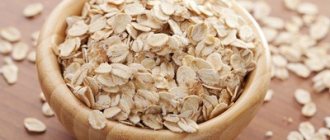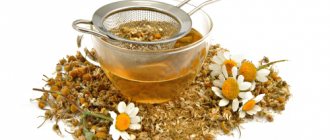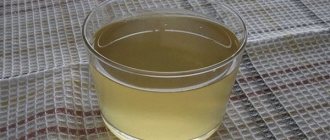Aromatic chicory can fit perfectly into your drinking diet and become a reasonable replacement for coffee. The “cocktail” will be especially useful for people suffering from diseases of the gastrointestinal tract. Indeed, a caffeine-free drink contains many elements that improve the patient’s well-being and have an anti-inflammatory effect. But sometimes chicory does more harm than good for gastritis and various gastrointestinal pathologies.
A tasty drink based on the dried root of the same name is used to achieve many goals: losing weight, curing eczema and psoriasis, improving the condition of patients with anemia and diabetes, lowering blood pressure.
For each of these cases, there are special methods and recipes for brewing the drink. People suffering from gastritis, stomach or duodenal ulcers should also know some of the nuances of preparing a healing “cocktail”.
Compound
To understand why the drink is good for health, you need to know what is contained in chicory:
- The main component of the plant is inulin. It has a positive effect on the functioning of the gastrointestinal tract, and is also the best option for a sweetener substitute for people with a disease such as diabetes.
- Another useful component of chicory, intibin, has long been used in folk medicine to normalize the functioning of the central nervous system and heart muscle. There are also options for using it to dilate blood vessels and veins.
- Chicory contains a lot of B vitamins and C, which is essential for immunity. The following components must be indicated: fructose, iron, potassium, organic acids. There are also antimicrobial components that relieve inflammation and promote regeneration of affected areas.
Benefit for health
The root of the plant is useful for:
- nervous system (due to the content of vitamin B);
- digestive tract;
- heart and blood vessels;
- liver and kidneys (chicory stimulates the excretion of bile, cleanses the body of waste and toxins).
The drink is also known to help you lose weight (thanks to riboflavin and thiamine).
Chicory is recommended for anemia because it is rich in iron. However, when cow's milk is added, the chemical element is less absorbed. Therefore, it should be replaced with a plant-based option - coconut or nut.
Effect on digestion
Chicory contains inulin, which is an excellent prebiotic. Used to treat a range of problems related to bowel function and digestion.
The effect of inulin on the body is especially noticeable in cases of heartburn and acid reflux disease. This is explained by the ability of the prebiotic to reduce the production of hydrochloric acid. In addition, the natural fibers contained in chicory improve intestinal motility. This significantly reduces the likelihood of constipation.
Since drinking coffee for gastritis and ulcers is not recommended, chicory can easily replace it.
To stimulate peristalsis, it is recommended to add honey to the drink. This infusion option is given to children after three years of age. It is considered an effective and safe laxative.
Benefits for gastrointestinal diseases
This product has long been known for the following properties:
- Helps relieve inflammation. The drink is recommended for people suffering from certain types of gastritis. In case of illness, chicory promotes wound healing and soothes inflamed and irritated mucous membranes. For this reason, the use of chicory is recommended for people with duodenal and stomach ulcers.
- Has an antimicrobial effect. The product contains tannins and essential oils, which reduce the activity of bacteria and improve the patient's condition. Therefore, foreign experts believe that consuming a drink with chicory is an excellent prevention of helicobacteriosis.
- Rich in vitamin C, which strengthens cells and blood vessels and improves immunity. By the way, it is often a decrease in the body’s protective functions that leads to the activity of Helicobacter pylori. Ascorbic acid is indispensable for gastritis. When the disease occurs, patients often suffer from vitamin deficiency.
- Contains B vitamins. They are especially useful for the normal functioning of the nervous system. After all, it often happens that gastritis occurs against a background of stress and emotional tension.
Features of the plant
This plant grows primarily in the temperate zone and tropics. This is a perennial plant belonging to the Asteraceae family. In the wild, the plant can be found in vacant lots, on forest edges, and along roads.
But in connection with medicines, the plant has been cultivated and grown in specially designated huge areas. Chicory flowers and leaves were used as a general tonic. Its root system is rich in microelements such as:
- vitamins, organic and mineral acids;
- tannins and proteins.
Chicory has a general strengthening effect on health:
- A component of chicory is pectin, which helps remove toxic substances from the body.
- Ascorbic acid helps support immunity.
- Potassium is useful for strengthening the heart muscle.
- Chicory root has a diuretic effect. This helps the body remove excess fluid and helps normalize water-salt balance. Chicory is rich in:
- vitamins A, C, B vitamins;
- manganese, iron, sodium, phosphorus.
Most often, drinks prepared from the powder of the rhizomes of this plant are used for diseases of the digestive system.
How much and how to use
Chicory is a non-toxic drink. Moreover, it does not contain caffeine, so it can be consumed in larger quantities than the invigorating and aromatic cocktail beloved by many.
However, if you have diseases of the gastrointestinal tract, you cannot drink the drink as much as you want. The recommended dose is no more than 2-3 glasses.
In what form is it best to consume?
It all depends on the purpose of use:
- To prevent and treat diseases of internal organs (including hypoacid gastritis and pancreatitis), you should harvest the roots yourself or purchase them in dry form. You can usually find the raw material at the pharmacy.
- If you do not have serious pathologies, purchase granules or soluble chicory powder at the supermarket. In this case, you should give preference to the expensive option - sublimate in the form of “pyramids” of the same size. The manufacturing technology of such a product allows you to preserve more useful properties and components. The powder is produced by drying at a temperature of 200-220 degrees. Therefore, there is no need to talk about its beneficial effects on the body.
In what form does it occur?
Chicory root serves as the basis for several products.
Liquid concentrate is its extract, which is added to sauces, desserts or drunk, diluted with water. Ground chicory is the root that has been roasted in the oven and crushed. It is also used to make drinks or as a seasoning.
Instant chicory is prepared by drying the extract. It is most convenient to drink as a tonic drink.
the whole root of the plant on sale, but many people prefer it, considering it the most natural product, guaranteed to not contain any “extra” additives.
Radicchio salad looks like a small purple fork. Its leaves are used raw for preparing salads and snacks.
Note. The nutritional value of different types of chicory varies. The liquid concentrate contains 264 kcal per 100 g, the raw root contains 378 kcal, and the lettuce leaves contain only 23 kcal.
Should you drink if you have pancreatitis or not?
To answer the question, it is necessary to decide what form of the disease we are talking about - acute or chronic. Let's look at each of them.
Exacerbation stage. Chicory should not be consumed at this time. You already know that the drink stimulates the activity of the pancreas and the diseased organ.
Chronic form (during remission). Already a month after treatment, the patient can introduce this drink into his drinking diet, but in a small volume. Inulin lowers glucose levels.
This feature of dietary fiber is especially useful for pancreatitis with impaired insulin production.
How to help your stomach
If, despite observing the recommended volume, the stomach does not accept the chicory drink enthusiastically, then this is manifested by not the most pleasant symptoms: heartburn, sour belching, pain in the upper abdomen, nausea, and sometimes even vomiting.
The main help in such a situation is to take an acid neutralizing agent (Maalox, Gaviscon, Rennie) as early as possible.
Then, for several days, it is advisable to take drugs that suppress the secretory function of the stomach: Omez, Nexium or Pariet. If the condition is accompanied by severe nausea or vomiting, then preference should be given to a combined dosage form with the antiemetic drug domperidone - Omez D or Omez DSR. It is also important at this time not to allow yourself anything extra in your diet; the diet should be the same as during an exacerbation. And of course, you need to promptly seek help from a specialist, and avoid using chicory in the future.
Can I drink if I have gastritis?
In which form of the disease is it permissible to drink a fragrant, healthy drink, and in which is it better to avoid its use? We invite you to read the opinions of experts on this issue:
- Atrophic form. This type of gastritis is characterized by chronic inflammation and subsequent thinning of the mucosa. It is also important that with this diagnosis the pancreas produces an insufficient amount of hydrochloric acid. In case of pathology, it makes sense to use chicory, which promotes the active production of gastric juice. Moreover, doctors recommend adding a small amount of dairy product - cream or milk - to the drink. They will reduce the negative impact of the healing cocktail on the gastric mucosa.
- Erosive gastritis and bulbitis. You need to undergo a course of drug treatment, and after (about 21-30 days) you can introduce a cup of chicory into your menu.
- Gastritis with high acidity. When drinking the drink, gastric juice begins to actively secrete. In this case, chicory can not only worsen the patient’s well-being, but also intensify the inflammatory process.
- Hypoacid gastritis. Since chicory is the record holder for inulin content, it can be safely included in your diet for those people who have low stomach acidity. The drink also improves appetite.
Symptoms of pancreatic diseases
In addition to acute and chronic forms of pancreatitis, there is pancreatic cancer, which is one of the most aggressive types of oncology. Each disease has characteristic symptoms, the appearance of which should be a direct signal for a comprehensive examination and consultation with a gastroenterologist, endocrinologist and oncologist. In the acute course of pancreatitis, a person is faced with a set of clinical symptoms:
- Severe pain in the left hypochondrium, which can radiate to the side, left side of the back, shoulder, have a girdling nature, or be localized in the left side of the chest.
- Nausea and vomiting that does not bring relief.
- Paleness of the skin.
- Dry mouth.
- Cardiopalmus.
An attack of acute pancreatitis is potentially life-threatening, so if characteristic symptoms appear, it is necessary to call an ambulance. The chronic form of inflammatory damage to the pancreas is characterized by a set of clinical signs:
- Stool disorders in the form of diarrhea that occurs after eating.
- Not pronounced, but periodically occurring pain in the left hypochondrium.
- Nausea and discomfort in the epigastric region after eating spicy or fatty foods, as well as alcohol.
- The feces acquire a heterogeneous consistency, and particles of undigested food may be visible.
- Loss of body weight, partial loss of appetite.
The danger of chronic pancreatitis lies not only in the fact that this process disrupts the entire process of digestion, but also in the fact that a chronic inflammatory process can develop into an acute one at any time. Pancreatic cancer is accompanied by a set of general and type-specific symptoms. Warning signs indicating the development of pancreatic cancer include:
- Pain in the middle part of the abdomen.
- Complete or partial loss of appetite.
- Skin itching.
- Yellowing of the skin.
- Increased gas formation in the intestines, chronic constipation, diarrhea, nausea and vomiting.
- Sudden causeless loss of body weight.
- Increased blood glucose levels.
The described clinical picture can be supplemented by general weakness, malaise, and when performing an ultrasound examination of the abdominal organs, an increase in the size of the liver and gall bladder is observed.
Symptoms of pancreatitis and acute gastritis may be similar. Unlike pancreatitis, with acute gastritis, vomiting brings relief, and abdominal pain is localized in one area and is not girdling. If we talk about how to distinguish gastritis from pancreatitis in the absence of specific symptoms, then only a comprehensive examination and consultation with a gastroenterologist will help in this matter.
Doctors' opinion about chicory for gastrointestinal problems
There are several points of view on this matter. Some doctors believe that taking a decoction based on this plant is not beneficial, since it increases the production of gastric juice. Nevertheless, experts agree that for gastritis with low acidity, the drink is more beneficial than harmful.
Some substances relieve pain and reduce inflammation. In addition, by taking a drink based on chicory root, you can enrich the body with vitamins, the deficiency of which is often observed when following a therapeutic diet for gastritis.
Recommendations for using the decoction:
- The chicory-based drink should not be drunk hot. This will only irritate the mucous membrane.
- Use chicory cocktail with honey for gastritis and pancreatitis. The natural delicacy will only enhance the beneficial properties of the liquid.
- Like coffee, chicory is not recommended to be consumed on an empty stomach.
- Do not combine the drink with alcohol. Although in folk medicine alcohol is used to treat stomach and duodenal ulcers, this is still not the best option.
When taking certain medications, you should not drink an aromatic and invigorating drink. We recommend that you consult your doctor about this.
When the drink is contraindicated
Despite the great benefits of chicory for diseases of the gastrointestinal tract, there are cases when the drink is not recommended:
- It is not advisable to drink chicory if you have a stomach or duodenal ulcer. Increased production of gastric juice can lead to erosion of the mucous membrane.
- People with cholelithiasis should be careful about the product and its consumption. The drink has a choleretic effect, which is useful for sand and small stones. But if the latter are very large, there is a danger that their movement will clog the bile ducts.
- You should not drink chicory if you have chronic bronchitis or asthma.
- It is forbidden to drink the drink if you have varicose veins.
- You should not drink chicory if you have hemorrhoids.
- Do not indulge in this drink if you are allergic to vitamin C.
- Small children under three years old.
- For expectant mothers and women during the lactation period.
Before consuming chicory, you should consult your doctor. This is especially important for ulcers, atrophic gastritis and Barrett's esophagus. The root of the plant produces a vasodilator effect, which in some cases is very undesirable.
Cooking recipes
There are different recipes for a therapeutic “cocktail” for people with gastrointestinal ailments.
For pancreatitis
We offer several options for preparing healthy drinks:
- Fry the chopped root. Pour 200 ml into the container. water, add 20 g of raw materials. Boil for 10 minutes and then strain. It is recommended to use 1 tbsp. l. 15 minutes before meals.
- 1 tsp. finely ground powder pour 0.5 tbsp. boiling water Add some low-fat milk.
- Take a spoonful of chicory, dandelion, elecampane and burdock root. Pour in 3 cups of hot water. Cover the broth and leave for 8 hours.
- Pour one spoon of plant root with 0.5 tbsp. boiling water, pour in milk.
With hypoacid type of disease
Concentrated healing “cocktail”:
- Pour a liter of water into a saucepan and place on fire.
- After boiling, add 0.5 tbsp. chicory.
- Reduce heat and simmer for half an hour.
- Let the drink cool and strain.
Drink the concentrated decoction by spoon before meals.
Prepare with powder:
- Add 5 tbsp. l. raw materials and pour 500 ml. hot water, close the lid.
- Let the drink brew for 2-3 hours.
Use ¼ tbsp. before eating.
Rules for using chicory
The root of the plant is produced in the form of small granules, which must be properly dissolved in water. In addition, you should follow a few simple tips. You can drink the product only warm, since chicory during gastritis in a hot or cold state greatly irritates the lining of the stomach. A pleasant taste, similar to coffee without strong bitterness, as well as healthy additives such as dried blueberries give the drink a special appeal. But you cannot abuse it - it is permissible to drink up to 3 cups per day.
The best recipes for a delicious drink
Preparing recipes with chicory is described on each package, but not all of them are suitable for people with gastritis. Here are the most delicious, effective and healthy options:
- Brewed drink. It turns out rich, but is made from fresh root. For it, take 20 g of crushed rhizome and cook over low heat in a glass of clean water. 10 minutes after boiling, filter and cool slightly.
- Decoction in drops. If you want to pamper your body with a useful plant, prepare a decoction of the root. It is prepared as in recipe No. 1, but taken not in cups, but 25 drops dissolved in water with a spoon of honey.
- Ready-made powder instead of tea. Stores sell bags of crushed chicory powder, the preparation of which takes 2 minutes, taking into account boiling water. For 200–250 ml of boiling water, take a maximum of 2 tsp. powder, first put chicory in a cup. Stir well and cool to room temperature.
- Drink in a thermos. A strong decoction with the plant is prepared from 5 tbsp. l. powder and 0.5 liters of boiling water. Mix everything in a thermos for several hours. You can only drink 50 ml up to 3 times a day before meals. This recipe is ideal for medicinal purposes.
We recommend: What alcohol can you drink if you have gastritis?
An exhaustive number of recipes with chicory will help you choose the perfect drink for your health. If the composition contains dried berries or other herbs, you should make sure that they can be infused for a long time or taken a few minutes after preparation.











